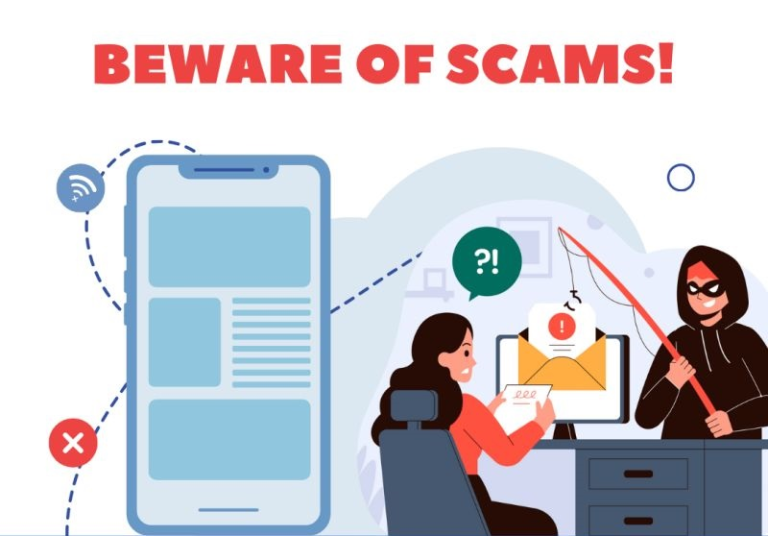
How to Identify and Avoid Scam Jobs Online
The world of freelance work offers a wealth of opportunities, from flexible schedules to the potential for earning a great income. However, with this vast range of opportunities comes the unfortunate reality that not all of them are legitimate. Scam jobs posted on freelance websites can easily trick inexperienced freelancers, leading to wasted time, lost money, or even data theft.
If you’re new to freelancing or looking to protect yourself from the growing number of scams online, here are some key strategies to help you identify and avoid scam jobs.
1. Scrutinize the Job Description
The first thing you should do when browsing freelance websites is carefully examine the job description. While some jobs may seem perfect, others can be red flags.
Vague or Too Good to Be True: If the description is overly vague, lacks specific details, or promises high earnings for minimal effort, be suspicious. Legitimate employers will usually provide a clear outline of job responsibilities, deadlines, and expectations. Scammers often use vague descriptions like “Earn money from home” without clear information.
Excessive Payment Promises: Scammers will often lure you in with promises of very high pay for tasks that sound too easy, such as “Earn $200 per day just for writing a few sentences.” If it sounds too good to be true, it usually is.
Unrealistic Expectations: Be wary of jobs asking for excessive work with no clear boundaries, such as “Need someone to handle all my marketing for $50.” If a job is asking for a massive amount of work for very little compensation, it’s likely a scam.
2. Check the Employer’s Profile
Before you accept a job or even submit a proposal, take time to investigate the employer’s profile.
New or Incomplete Profile: New accounts or profiles without much information should raise suspicion. While some legitimate employers may be new to the platform, scammers often create new profiles to avoid detection.
Negative Reviews: Look for reviews or feedback left by previous freelancers. If an employer has numerous negative reviews or complaints about payment issues, unprofessional behavior, or poor communication, it’s better to avoid them.
Unverified Payment Methods: Check if the employer’s account is verified. Most platforms have a verification process that adds an extra layer of credibility to employers. If the employer is not verified, exercise caution before working with them.
3. Beware of Unclear or Suspicious Payment Methods
Freelance websites typically provide secure payment systems for freelancers to ensure safe transactions. However, some scammers will try to get you off the platform and into more risky methods of payment.
Request for Off-Platform Payment: If an employer asks you to communicate or accept payment outside the freelance platform (via PayPal, wire transfer, or other means), it’s a significant red flag. Platforms often have protection against fraud, but this protection can be voided if you work outside of their system.
Advance Payment Requests: Scammers may ask you for an upfront payment or registration fee to “secure” the job or unlock further details about the project. Legitimate employers do not ask for upfront fees. If this happens, report the employer immediately.
4. Look for Red Flags in Communication
Communication can be a big giveaway when it comes to scams. Pay attention to how the employer communicates with you.
Poor Grammar and Spelling: If the job description or communication from the employer is riddled with errors, it could be a scam. Professional employers typically communicate clearly and professionally. Scammers often use broken English or have inconsistent messaging.
Unusual Requests: If an employer asks for personal information like your social security number, bank details, or asks you to complete tasks unrelated to the job (e.g., surveys or purchases), it’s a clear sign of a scam. Avoid sharing sensitive personal information, especially early on.
Too Much Urgency: Be cautious if an employer pressures you to act quickly, promises immediate payment, or insists on hiring you immediately without discussing the details of the job. Scammers often push for rapid decisions so you don’t have time to think or verify their legitimacy.
5. Check the Job’s Location
Some scams are location-based, with the fraudster attempting to exploit the freelancer’s geographic location for their benefit.
Fake Remote Jobs: Be wary of “remote” positions that involve “packages” or shipping products. Some scammers pose as employers looking to ship items to freelancers, which often involves receiving illegal goods or being asked to send payments for fraudulent products.
International Scams: If an employer claims to be from a foreign country and promises significant pay, but refuses to conduct communication or payment through secure channels, tread carefully. This could be an attempt to involve you in money laundering or fraud.
6. Report Suspicious Listings
If you encounter a job posting that seems suspicious, don’t hesitate to report it to the platform administrators. Freelance platforms take scams seriously and will investigate flagged listings. Reporting these jobs helps protect the community and prevent others from falling victim.
7. Trust Your Instincts
If something feels off, trust your gut. Freelancers often rely on intuition when determining whether an opportunity is legitimate. If the job sounds too good to be true or you feel uncomfortable with the communication, it’s best to walk away.
Conclusion
While freelancing offers flexibility and exciting opportunities, it’s crucial to remain cautious and vigilant when navigating freelance websites. By carefully examining job descriptions, investigating employers, and using secure payment methods, you can greatly reduce the risk of falling victim to scams. Always remember to trust your instincts and report suspicious activity, and you’ll be able to build a successful freelance career without encountering unnecessary risks.
